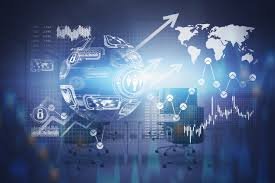The Mall of America, Minnesota’s massive retail mecca, is upping its security game with the latest in high-tech surveillance, facial recognition software. Yes, that means every smile, frown, and mid-shopping spree selfie might just get scanned for safety.
The Tech-Savvy Turn in Security
Picture this: you’re strolling through the bustling corridors of the Mall of America, your thoughts lost in the dazzling displays and endless shopping possibilities. Unbeknownst to you, cameras are silently mapping your face, ensuring that you’re there for a new pair of shoes and not something more sinister. This isn’t a sci-fi flick; it’s the mall’s new reality.
After a spate of gun-related incidents in recent years, the Mall of America has decided to add facial recognition to its multi-layered security strategy. “Very mixed feelings about this because it could be useful and not so useful sometimes,” says Melva Bargiela, a long-time Minnesota resident now living in Spain. And who could blame her? It’s a bit like finding out your favorite barista also moonlights as a private investigator.
What Exactly Are They Looking For?
The mall’s vice president of security, Will Benhjelm, wants to reassure us that Big Brother isn’t trying to figure out if you’re a latte or cappuccino kind of person. “Our system is not scanning faces to go find out who you are,” he says. Instead, the software is on the lookout for “persons of interest” – a term that includes banned individuals, potential threats, and missing persons. So, unless you’re on Santa’s naughty list or there’s an APB out for you, your mug won’t make it into the database.
For the everyday shopper, this means that the cameras are just another set of eyes ensuring safety. If your face doesn’t match any in their “persons of interest” database, your image is discarded faster than last season’s fashion.
The Good, the Bad, and the Uncomfortable
For some, the idea of facial recognition brings a sense of relief. Monday West, a visitor from Southern California, casually shrugs it off: “I think they’re watching us all the time, have been for years.” Others, like Brandon Charles of Minneapolis, voice concerns, especially regarding potential errors. “As a person of color, it does make me a little nervous just because mistakes can be made,” he notes, pointing out the stakes when errors occur.
But let’s talk numbers. The Department of Homeland Security tested this algorithm, and it correctly identified individuals 99.3% of the time. That’s not quite perfection, but it’s close enough to keep the misidentifications to a minimum. And for those worried about mistaken identity, there’s a three-layer human verification process before any action is taken.
A Layered Approach to Safety
The facial recognition software is just the latest addition to the mall’s security arsenal. Back in March, security dogs trained to sniff out guns were introduced, adding a canine touch to the safety efforts. Traditional measures like patrols, bike units, dispatch teams, and plainclothes officers continue to be part of the comprehensive security plan.
So, what’s the verdict? Shoppers seem to lean towards a cautious acceptance. As Melva Bargiela puts it, “I get it. They’re just looking for bad people.” It’s a trade-off between privacy and security that each visitor will have to weigh.
In the end, the Mall of America is walking a tightrope, balancing the need for heightened security with the public’s concern for privacy. As technology evolves, so too will the methods to keep us safe. For now, keep shopping, keep smiling, and know that someone’s got your back – or at least your face – covered.





